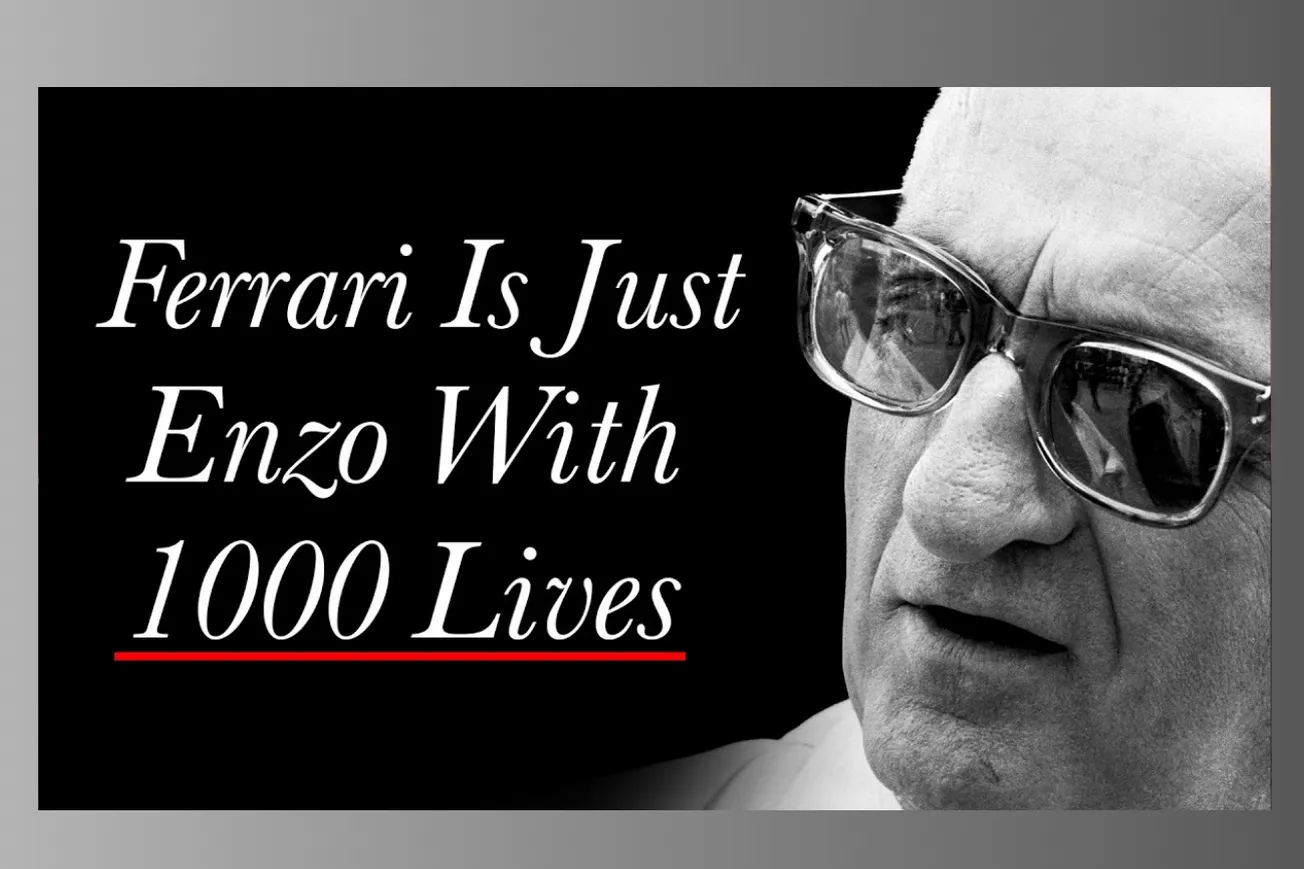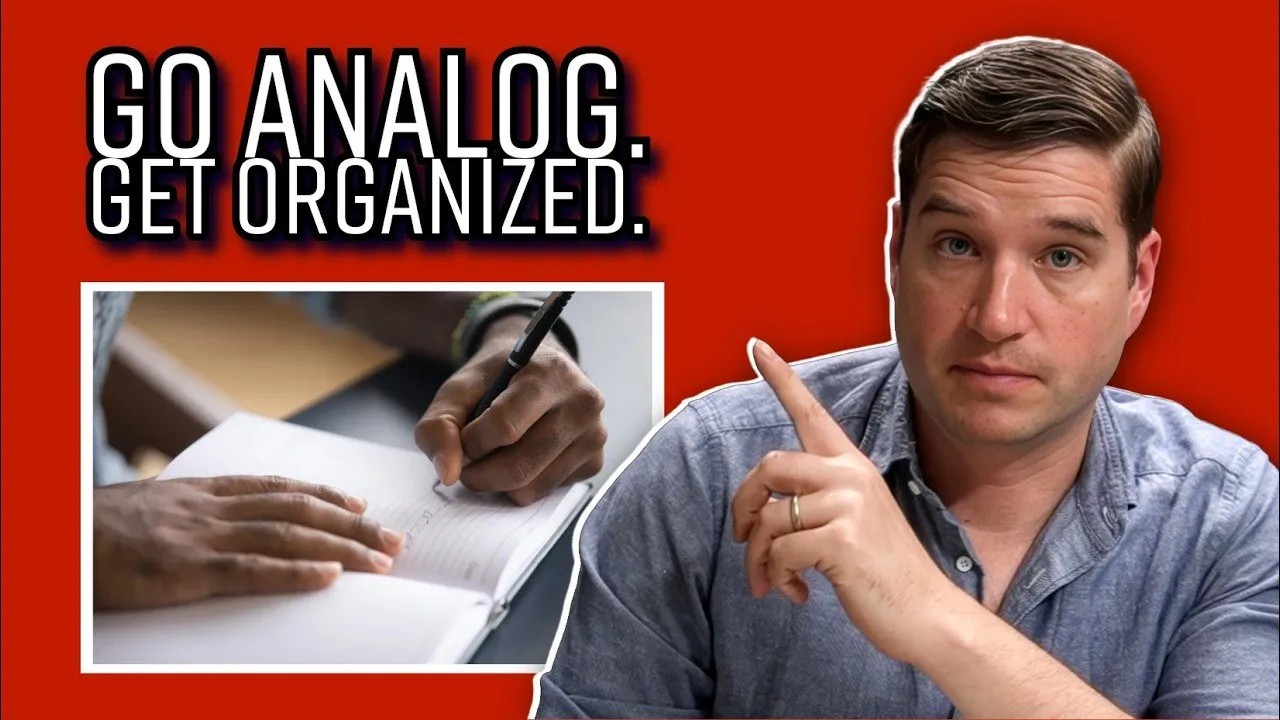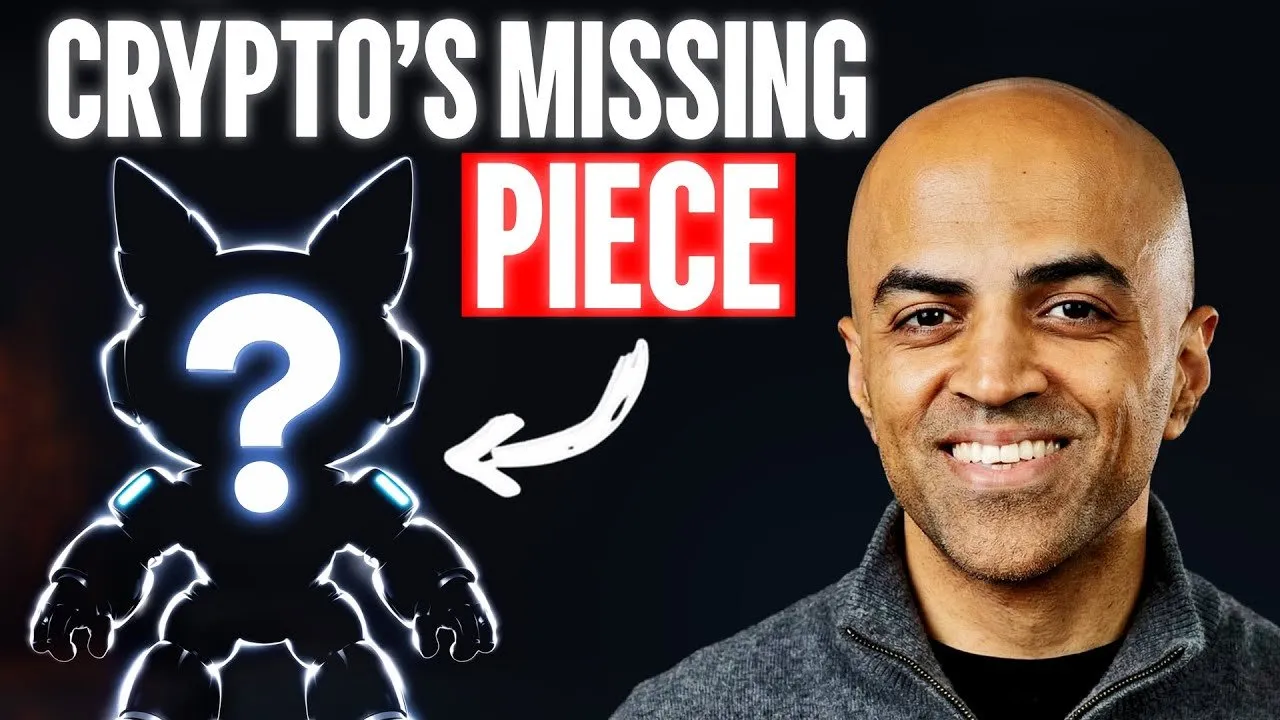Table of Contents
Enzo Ferrari transformed personal tragedy into automotive greatness through six decades of unwavering obsession with winning races and building the world's most coveted cars.
Key Takeaways
- Ferrari's "ironbound tenacity" and "fierce devotion to the single cause of winning automobile races" sustained him for nearly 60 years of uncompromising focus
- His greatest talent was being an "agitator of men" - the ability to motivate, manipulate, and manage highly skilled people with giant egos
- Marketing genius through scarcity: "A Ferrari must be desired. It cannot and must not be perceived as something immediately available, otherwise the dream is gone"
- Work became his antidote to trauma - after losing his father and brother at 18, he worked 7 days a week, 12-16 hours daily until age 90
- "The best marketing is winning" - racing victories attracted wealthy customers who wanted to own a piece of that success
- He treated cars like living beings, describing them with the passion most people reserve for lovers, saying "they breathe through their carburetors"
- Personal vetting of every customer created mystique and exclusivity that made people want Ferraris more, not less
- His philosophy: "Everything that I've done, I did because I couldn't do anything less" - driven by necessity, not choice
- Learning came from losing: "When one loses, one knows what has to be done. When one wins, one is never sure"
Timeline Overview
- 1898-1916 — Born in Modena, early exposure to father's metalworking shop, attends first automobile race at age 10 creating lifelong passion
- 1916-1920 — Loses father and brother within one year at age 18, family business collapses, rejected by Fiat, begins working for small auto companies
- 1920-1931 — Racing driver for Alfa Romeo while expanding into sales and team management, building network and skills
- 1929-1939 — Founds Scuderia Ferrari as Alfa Romeo's racing division, develops reputation for managing top drivers and winning races
- 1939-1947 — Leaves Alfa Romeo, starts AAC during WWII, spends four years developing capabilities under non-compete agreement
- 1947-1969 — Ferrari company founded at age 49, builds racing and road car empire through pure obsession and quality focus
- 1969-1988 — Sells 50% to Fiat but retains racing control, continues working until death at 90, never takes vacation in entire life
The Making of an Obsessive: Tragedy and Determination
- Ferrari's obsession began with a spark of passion when his father took him to his first automobile race at age 10, an experience he described as creating "a spark in his heart" that would drive him for the next 80 years.
- The foundation of his character emerged from early tragedy when both his father and brother died within one year when Enzo was only 18, leaving him with "a feeling of loneliness and isolation that pursued Ferrari throughout his career."
- His rejection by Fiat after the family tragedies created a revenge motivation that lasted five decades: he sat on a park bench and cried after being turned down, but used that slight as fuel, saying "All I had was a passion to get somewhere."
- The experience of having "no money, no experience, limited education" taught him that pure determination could overcome any disadvantage, a lesson he applied throughout his career when facing better-funded competitors.
- His father's workshop provided early education in craftsmanship and attention to detail, with "the clanging of metal among Ferrari's earliest childhood memories" and lessons about being "a living example of devotion to duty."
- The combination of early passion, devastating loss, and rejection created an unshakeable focus: "If there was one essential quality about the man, it was his ironbound tenacity, his fierce devotion to the single cause of winning automobile races with cars bearing his name."
Master of Human Psychology: The Agitator of Men
- Ferrari's self-described greatest talent was being "an agitator of men" - his ability to "stimulate the energy and creativity of his colleagues like no one else" through a combination of charisma, intimidation, and manipulation.
- His management philosophy centered on recognizing and developing talent while maintaining absolute control: "his greatest skill was his ability to recognize talent" combined with managing "highly skilled people with giant egos."
- The fear factor became a management tool that created peak performance, with employees and drivers consistently saying "we were afraid of him" - the same description Michael Jordan's teammates used about their relationship with the basketball legend.
- His psychological insight extended to understanding what motivated different types of people, leading to his reputation as "a compelling salesman and manipulator" who could capture anyone who crossed his path.
- The closed emotional demeanor served strategic purposes, with colleagues describing his temperament as "closed like a walnut" and observers noting he would "sit there like a stone" regardless of race outcomes, maintaining mystique through emotional inscrutability.
- His approach to talent management was ruthless but effective: "Once engineers had given their best and began to fail, he would replace them immediately. Drivers came and went without sentiment" - prioritizing results over relationships.
Marketing Genius: Scarcity Creates Desire
- Ferrari's counterintuitive marketing strategy deliberately limited availability to increase demand, exemplified when he told a wealthy American customer "we have so many requests" despite having unsold cars in the parking lot hidden from view.
- His fundamental insight about luxury brands became legendary: "A Ferrari must be desired. It cannot and must not be perceived as something that is immediately available, otherwise the dream is gone" - creating mystique through artificial scarcity.
- Personal vetting of every customer created an exclusive club atmosphere where "he sold only to those he personally deemed worthy," making Ferrari ownership about status and worthiness rather than mere wealth.
- The racing-to-sales connection formed his core marketing strategy: "If we build successful racing cars then rich men will flock to our door to obtain similar cars. The best marketing is winning" - using track success to drive road car demand.
- Brand associations with famous and infamous customers enhanced rather than damaged Ferrari's appeal, with "associations with famous rogues did Ferrari's profile no harm at all" as celebrities and playboys created aspirational connections.
- The mystique extended to his personal presentation - wearing dark sunglasses so "you couldn't look him in the eye" and maintaining an aura of exclusivity that made people want access to his world more than his products.
Obsessive Work Ethic: Work as Antidote to Tragedy
- Ferrari's relationship with work bordered on pathological, working "7 days a week, 12 to 16 hours a day, holidays included" and famously never taking a vacation in his entire life, even when found working in August when "virtually all Italian industry shuts down."
- His work schedule in his early thirties demonstrated the pattern he would maintain for six decades: "got up before sunrise, drove to multiple cities, usually skipped lunch, worked late afternoons and evenings" covering multiple responsibilities simultaneously.
- The psychological function of work became clear in his own words: "Work has always been and always would be the best antidote" to the depression and nervous breakdowns that periodically affected him throughout his life.
- His simple lifestyle despite eventual wealth reflected his singular focus - money only mattered as fuel for racing, with observers noting he "retained the ways of a simple, uncluttered man" even after becoming rich and prominent.
- The obsession extended to his physical presence at the factory where "Enzo can keep an eye on everything that is going on merely by walking a few yards" in what amounted to "one enormous room" reflecting his need for total control.
- Even in his final years, "Enzo continued to come to work until he was no longer strong enough to stand," demonstrating that his identity was completely merged with his work rather than viewing it as separate from his life.
Emotional Connection to Machines: Cars as Living Beings
- Ferrari's relationship with his cars transcended normal business attachment, speaking of them "as if they were alive" and believing "cars possessed unique behaviors just like people do - they breathe through their carburetors, they were skinned with metal."
- His description of the creative process revealed deep emotional investment: "In the first act of his labor, the maker conceives what his creature is to be. He dreams of it and he sees it in detail" - treating car creation like artistic conception.
- The language he used about his products resembled romantic love: "This kind of love which I can describe in an almost sensual or sexual way within my subconsciousness is probably the main reason why for so many years I no longer went to see my cars race."
- His inability to watch races stemmed from emotional pain rather than disinterest: "To think about them, to see them born and to see them die because in a race they are always dying even if they win, it is unbearable."
- The perfectionist obsession with engines became legendary, with his famous declaration "I don't care if the door gaps are straight. When the driver steps on the gas, I want him to shit his pants" - prioritizing performance over aesthetics.
- This emotional connection extended to his assessment of completed cars: when asked about his favorite Ferrari, he answered "The car which I have not yet created," always looking forward rather than celebrating past achievements.
Blueprint for Greatness: Learning from Bugatti
- Ferrari's model came directly from studying Ettore Bugatti, who had "created an automotive fiefdom in a tiny village" and "stood above the rest in terms of lifestyle" by manufacturing limited quantities and selling "only to those he personally deemed worthy."
- The Bugatti influence shaped Ferrari's vision of becoming "a grand constructor - the classic manufacturer of complete racing cars and high performance road automobiles for a select clientele of elite enthusiasts."
- The small-scale, artisanal approach distinguished Ferrari from mass producers: "I am not an industrialist, I am a constructor. In my little factory, I can make immediate changes in design which would require months of overhaul in a large mass production plant."
- Quality over quantity became the operational philosophy, with Ferrari producing "about 750 cars a year" compared to mass manufacturers' thousands, creating what observers called "the product of a sort of automotive watchmaker."
- The craftsman approach extended to every detail, with "crankshafts sculpted by hand from solid steel, each one requiring 86 hours of work by a highly skilled craftsman" and processes that "recalled the casting of Renaissance statuary."
- This blueprint validation came from understanding that "only a few men in history had achieved such an elevated status" as independent automotive creators, providing a proven model for building both cars and mystique.
Competitive Philosophy: Learning from Loss, Driven by Winning
- Ferrari's counterintuitive approach to defeat emphasized learning over disappointment: "There's always something to learn. One never stops learning, particularly when one is losing. When one loses, one knows what has to be done. When one wins, one is never sure."
- His pathological competitiveness extended beyond racing to every aspect of business, with colleagues describing him as "a man with a diamond hard will to win at all costs" who brought that intensity to daily operations.
- The psychology of winning became a systematic study for Ferrari, who identified key principles: "Competition is the impetus for innovation. There is in some men a need to achieve greatness. A man willing to die at the wheel is always likely to beat a man in a faster car if he can survive."
- His understanding of human motivation through competition drove his management style: "I have never considered myself a designer or an inventor, but only one who gets things moving and keeps them running. My innate talent was for stirring up men."
- The relentless pursuit of perfection meant "each victory or accomplishment was only the starting point for the next" with his motto being "my next car is best" rather than celebrating past successes.
- This competitive obsession sustained him through six decades of racing where "scarcely a year passed without a driver's death" and financial pressures that would have broken lesser commitments to the sport.
Conclusion: The Ferrari Legacy of Singular Obsession
Enzo Ferrari proved that extraordinary achievements require extraordinary obsession, transforming personal tragedy into six decades of unwavering focus on a single goal. His legacy demonstrates that true greatness comes not from balanced living but from the willingness to sacrifice everything for mastery in one domain. The Ferrari brand remains a testament to the power of refusing to compromise, understanding human psychology, and building mystique through scarcity rather than accessibility. His life shows that when passion, work ethic, and singular focus combine with an understanding of human nature, the result can transcend business to become legend.
Practical Implications
- Channel tragedy into obsessive focus - Use setbacks and rejections as fuel for long-term motivation rather than allowing them to create permanent limitations
- Master human psychology in leadership - Develop the ability to motivate different personality types through understanding what drives individual performance
- Create scarcity to increase demand - Make your products or services harder to obtain rather than more accessible to build desire and exclusivity
- Use work as emotional regulation - Channel intense emotions and energy into productive output rather than seeking external validation or comfort
- Study successful models before innovating - Find proven blueprints from adjacent industries or time periods before trying to invent entirely new approaches
- Learn more from failures than successes - Systematically analyze defeats to identify specific improvements rather than celebrating victories
- Maintain emotional distance for strategic advantage - Control personal reactions and emotional displays to maintain mystique and decision-making clarity
- Focus on core competency obsessively - Resist diversification and commit completely to becoming the absolute best in one specific domain
- Build personal brand through authentic passion - Let genuine obsession and expertise create natural marketing rather than manufactured messaging





